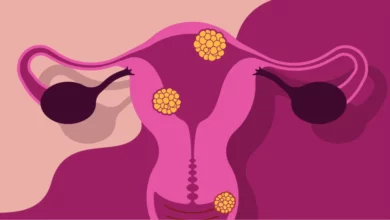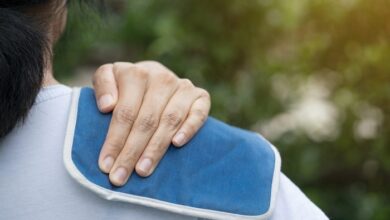The idea that “those kids with their headphones will ruin their ears!” turns out to be more than just the ravings of grumpy old-timers. The volume on your headphones can seriously impact your hearing, and it’s worth knowing the facts the next time you reach for your iPod to crank up tunes on your way home.
Hearing loss happens when the tiny hair cells within the ear that convert sound waves into electrical signals become damaged or die, and there’s a huge weight of evidence to show that high-volume music in headphones is a significant hearing risk. How do you know if your music is at an ear-damaging volume? The general rule about “too loud” is that if a person sitting next to you can hear it, it is likely damaging your hearing.
The UK’s National Health Service recommends a 60:60 rule: don’t go any higher than 60 percent of the maximum volume on an iPod or musical device, and only play music or any other audio that loudly for a maximum of 60 minutes per day. This is a reflection of the two-part nature of the problem: hearing loss from exposure to loud noises is a combination of both volume and length of time. So if you’re putting music in your ears, you need to manage it carefully to make sure you don’t leave yourself with damage in the future.
3. Do Ear Candling
Frankly, this sounds to me like one of the least attractive ways possible to spend an evening. But ear candling — the practice of using candles inserted into the ear to “remove” the wax inside — is a widespread practice, despite significant scientific evidence that it does nothing whatsoever to the levels of wax inside the ear.
Ear candles or cones apparently work by inserting one end of candle into the ear, setting the other end on fire, and then “sucking” the wax into a tube inside the candle. The problem? The residue that ends up inside the candle has nothing to do with your ear; it’s just the natural residue of the candle itself.
The Mayo Clinic’s website calls ear candling “ineffective at removing earwax,” and mentions a host of other potential problems this habit might cause, including accidentally getting candle wax into the ear canal (no, it is not a helpful kind of wax to have there) and eardrum perforation. So let’s recap: no benefits and a host of possible problems can result from sticking a lit candle in your ear. Nope.
4. Refuse To Wear Earplugs In Noisy Environments
Yes, I know you might not feel the music in the same way at a concert or a serious EDM night out with earplugs in, but your ears will thank you dearly for it later. There’s no punk cred in avoiding ear protection; every rocker I’ve ever met has intense supplies of ear plugs, and one particularly heavy band recommends that every audience member wears two types of ear protection.
Exposure to noise pollution at high decibels for long periods is a core cause of hearing loss; it’s why people who work in noisy environments like airports and construction sites are required by law to protect their ears with heavy muffs. The decibel level that will start to cause problems is anything above 85db; an average conversation is about 65db, while many personal music players will reach 100-110db. If you’re leaving your earplugs at home at noisy music festivals or seriously full-on clubs, you’re seriously risking your hearing.
5. Pierce Your Ears At Home
Oh my god do not do this. You may think that poking a disinfected needle through the fleshy bit of your ear (or elsewhere) can’t be that bad, but it’s a serious risk for several reasons. One is hygiene: it’s highly unlikely that you’ll be able to completely sterilize everything in your environment for home piercing, which could lead to an infection (which will be highly unpleasant at the least). Even places that give piercings in malls have procedures in place to drastically reduce the risk of infection: they all use sterile single-use piercing guns that can’t pass infection from person to person. The Association Of Professional Piercers has very strong guidelines about sterility, equipment and proper materials for piercing; it’s not something you should trust to amateurs.
Other potential problems include the fact that home piercers won’t be trained in precise positioning to avoid veins and nerves, they might not have access to proper sterile earrings without coatings, and that they won’t know what to do if something goes wrong. If you desperately want a piercing, save your money and put yourself on a piercing waiting list; doing it at home isn’t worth the problems.




